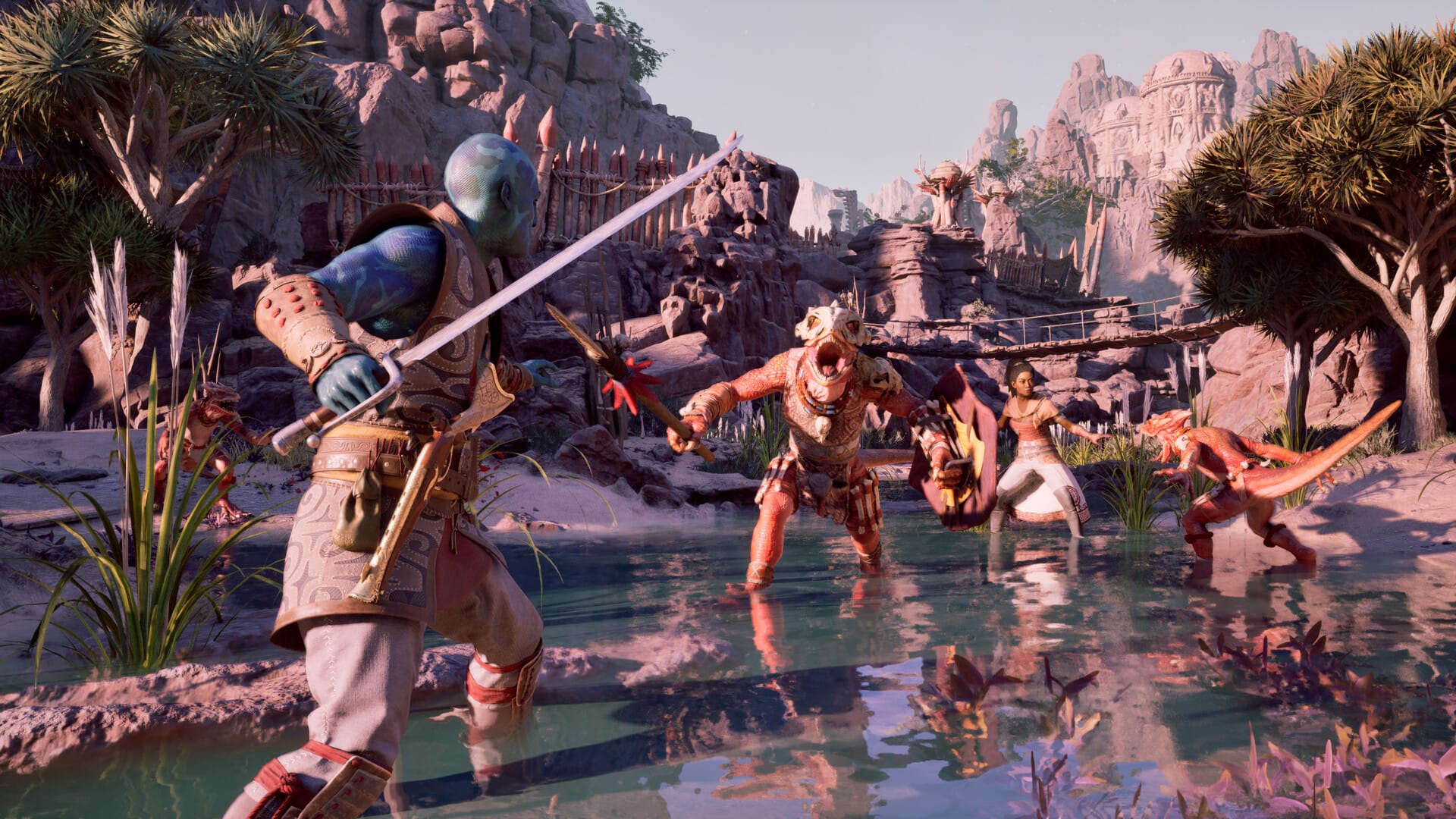All games are built on the games before it, in ways big and small.
In some cases, it might mean being the latest in a long running franchise, like Civilization VII, where you're navigating conversations on leading a genre and being a sequel. Who to serve? In another, such as Avowed, it might be trying to navigate around the game people think of when they look at screen shots, aka Skyrim, to find your own identity.
Rob has spent time with one of these games, while Patrick has spent time with the other. But both are dealing with similar issues in different ways.
Patrick: In recent weeks, I’ve played a decent chunk of the new Obsidian RPG, Avowed. You know that I didn’t have a great impression of that game when I first played it, but upon revisiting, I’ve found the combat, exploration, and storytelling clicking into place. It’s the kind of game where you are compelled to describe it, both positively and negatively, as “scratching an itch.”
An “itch” suggests that a need that’s not being fulfilled. (It also might mean I fall off the game, because an itch can go away, as you realize the reason you were invested was to address the itch.) The reason Starfield was so anticipated was precisely because nobody makes games like Bethesda Game Studios. Putting aside how Starfield turned out (boring! safe!), it’s also because nobody can make games like Bethesda Game Studios, because not everyone has the seemingly infinite resources and time to toil away at a formula they helped pioneer ages ago.
It’s also a game whose faults stick out—and sting more—because we likely won’t Bethesda take another swing for…half a decade? It’s impossible to know, but Elder Scrolls isn’t coming “soon.”
What Obsidian, as a studio, has been trying the last few years is fascinating. The Outer Worlds, Grounded, Pentiment, and Avowed are different from one another, but in other ways, there’s fascinating overlap. These are games made with smaller teams, with lower stakes and smaller budgets. That’s no guarantee from the crushing and irrational pressures of the games industry, but it means Obsidian games are as interesting for what they aren’t, as for what they are.
I started thinking about this after Obsidian spoke at this year’s DICE event. Per PC Gamer:
One of the pillars of the plan is staying "lean and invested," meaning small enough that none of Obsidian's employees feel like a cog in a machine. Morgan and Britch said that in recent years they'd been considering opening multiple international offices, but in the end decided to partner with existing studios rather than risk weakening Obsidian's culture by getting too big.
Leanness can also refer to Obsidian's games: It doesn't aim for unprecedented scale or the most advanced graphics, and before it greenlights a game, Britch says the studio spends a lot of time determining how much to invest in the project with the assumption that it will be a "mild success," not a smash hit.
In Avowed’s case, I’ve seen some grumbling about how you can’t steal money, objects, anything. Avowed carries the aesthetics of a Skyrim-like game, and inarguably has pitched itself as a game that would, in theory, appeal to players who liked Skyrim, aka games laughably big and open-ended worlds, but intentionally limits its possibility space. Would Avowed be better if it had…a badly implemented version of stealing? It’d be an option over no option at all, I suppose, but it feels like we’re headed, more generally, towards a world where video games are more like Avowed, gesturing at the sprawling games of the past but with more modest ambitions, while we’re graced, at best, once in a generation with a new audacious Bethesda or Rockstar game.
Whether it scratches your itch, then, depends on what you wanted scratched in the first place.
I ask you this, Rob, in the context of the latest Civilization and the swings that game took. We get Civilization games more often than Bethesda games, but it’s still a big moment in the genre.

Rob: Patrick that is a good question but first I want to get a quick rant off about stealing.
It is one of the most problematic mechanics in RPGs. I am wracking my brain to think of a game where I really like how it works. I feel like even as far back as the Ultima series it felt like it highlighted how odd RPG worlds are.
Think how games struggle to signal what even counts as stealing. You’ll come across an item and its description pops across the interface but with a tag: “steal”. Across the room, a similar item bears no such tag. So does that mean it’s fair game? In a lot of RPGs it does. You walk into people’s stores and houses and just start ransacking them right in front of them, and as long as you don’t grab a forbidden item you’re all good. But say you do grab a forbidden item? What happens? Well, that opens an entirely new can of worms: how do characters detect when you have stolen? Does the game just flag you as a thief whether you were seen or not? Do I have to be observed by the character I’m stealing from? By any character? If I am detected, what are the consequences? Do I just have to kill or run away from this one person, or am I marked as a thief in a way that will follow me to other locations, like you walk into a store in New York and you see a wanted poster of yourself for swiping a water bottle in Racine? Does that even make sense for the setting, given how frequently you’re in a low-tech fantasy world where information does not travel easily?
Even if an RPG figures out a way to communicate all this and create some consistent, sensible rules to handle theft and detection, the odds of it actually being fun to play as a thief are low. Most RPGs aren’t anything like stealth games and pass / fail skill checks don’t make for the most riveting stories, so stealing turns into yet another thing that drives constant quicksaving and probably even more boring inventory management.
Larceny feels like one of those things where you either need to really make it a major focus in a game, or you need to steer clear of it because it cannot help but highlight the barely held-together artifice of game worlds. Usually my flirtation with a life of crime in an RPG ends when a small theft leads to me depopulating an entire village with sword and spell, as I am swarmed to the death by every man, woman, and fantasy critter in the town because I grabbed “Soup [steal]” and not “carrot.”
In a funny way, I think the Civilization series is also one that has been transformed and maybe a bit tortured by a need to encompass activities and goals that don’t come naturally to it. If you go back to the early games, they involved a lot of combat. You could build a space ship and win the game that way but even then, you’d probably have to smack down a couple other civilizations along the way. The grand historical sweep of it was a theme draped over a game about acquiring resources to turn into more resources or into armies to go pulverize other people.
That kind of game would have gotten stale regardless, but also it kind of hit a point where you were making a game about colonizing as much of the world as possible and your primary interaction with other players was “so is it time for genocide?” So Civilization started giving players other goals and tried telling different stories about history from this foundation of “colonize land, build armies, crush enemies.”
Library, Zeal or Foundation tier
Subscribe at Library, Zeal or Foundation tier(s) or above to access "The Itch That Can't Be Scratched". You'll also get access to the full back catalog of that tier's content.
Sign up now Already have an account? Sign in